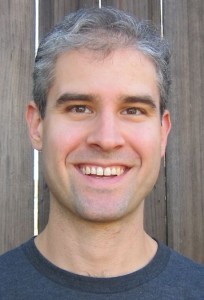
Among the remote learning options offered by Wonderschool, a company that matches families to child-care and micro-schools near them, is Base One, a space where students can focus on schoolwork and stay up to speed during the pandemic while receiving access to premium coding education and state-of-the art video gaming equipment they can use after school.
Editor’s note: This commentary from Michael B. Horn, co-founder of the Clayton Christensen Institute and executive director of its education program, first appeared on Substack.
As pandemic pods have spread around the country and reporters and families are trying to make sense of this moment in the sun for micro-schools, I’ve been talking to the different entrepreneurs supporting these experiences for students, families, and educators.
A central question on reporters’ and educators’ minds has been equity. With over 50% of school districts planning on remote learning in the fall, there’s concern that those with the most resources can find or create good solutions, whereas those with the least will be stuck without any suitable schooling and child-care options.
Given the existing opportunity gaps for students from low-income and minority backgrounds before the pandemic, and the assumption that many have suffered deep learning losses since March while those from relatively well-off families likely found learning opportunities through their home environment if not their school, there is heightened sensitivity around the question.
This feels right on the surface.
But a recent conversation I had with Chris Bennett, the founder and CEO of Wonderschool—a company that matches families to child-care and micro-schools near them, gave me pause (you can watch the interview here on YouTube).
Think of Wonderschool like an Airbnb for launching education programs. The company has been operating since 2016. Before the pandemic it was growing fast, as it helped people start infant and toddler programs and preschools out of their homes.
When I asked Chris about the equity question, he urged caution around making presumptions.
“It's really hard to get visibility into what's happening for families all over the country that are coming through this,” he said. “But my guess is [that low-income and middle-income families], they're figuring this out, just along with, you know, very wealthy families that are out there doing this.”
The son of immigrants from Honduras who grew up in Miami in a large family of 31 first cousins where he was the first to graduate from college, it’s a question Chris takes seriously. He credits his own success with having been enrolled in a great preschool program.
As he said, “It's something I think deeply about. You know, the mission of Wonderschool is to ensure every child gets access to the education they need to fulfill their potential. And so, we are very, very committed to every child getting access, especially when I share my story.”
That’s where the second point comes in. Low-income and minority parents are far more likely to prefer that their children do not return to school buildings until the pandemic has passed than their counterparts. For example, according to one survey, 64% of black parents want remote learning versus 32% of white parents. Most families making less than $50,000 want remote learning, whereas 27% of families making more than $150,000 feel the same way.
As Morgan Polikoff, co-director of the study, hypothesized, “These communities may have already been harder hit by the virus, and they have seen more of what the actual impact is on people's health.”
The findings, which have appeared in survey after survey, also suggest that these families do have child-care options in place.
The final thought also goes back to something Chris shared with me.
“What’s really exciting about this movement is this could potentially lead to funding for micro-schools from our school districts, from our state governments, from our from the federal government,” he said. “And if there's funding for micro-schools, just like there's funding for public school or funding for charter schools. Then, suddenly, you know, everyone gets access to a micro-school.”
As Chris observed there’s already a vehicle in some states to do just this: Education Savings Accounts (ESAs), which are funded with public dollars that allow families to spend the money on micro-schools and other education services. In Arizona, for example, ESAs allow students to attend micro-schools from Prenda, a hot startup in the micro-school arena.
“All I keep thinking is why isn't that available nationwide? If that's available nationwide, then the equity component is solved for,” Chris said. “Now the quality component is the next level, that's something that we're going to have to solve for, but that’s an issue about every type of micro-school, no matter how wealthy the parent is.”
Most public schools haven’t eagerly jumped in to support this trend Chris acknowledged, but given the funding exists, he’s bullish about the greater opportunity. And to be fair, there are some districts that have seized the moment to create learning pods themselves and ensure all their students have adequate options, such as the Adams 12 district north of Denver and others featured in this Chalkbeat article.
That resonates because although I’ve argued that disruptive innovation of schooling is unlikely in the United States, I’ve also long hypothesized that if it were to occur, it would come about in the form of an Airbnb platform making home-schooling and micro-schooling far more accessible to many more families who were over-served by the existing schools and just wanted a customized schooling option that fit their needs.
Stay tuned to what happens to Wonderschool. It was one of the hot startups before the pandemic hit, but in supporting micro-schools, it appears they are remaining relevant and will continue to grow. And in so doing, another part of the Wonderschool story is that they are enabling educators to earn significantly more money by pricing their services in the market. As Chris shared, one preschool teacher on their platform was able to earn the same salary that she earned in a year in just a month and a half by starting her own school.
To attract the talent in the teaching profession that children need to develop, that could also be a game-changer.
To continue reading this article and to learn why Horn believes community colleges shouldn’t be the answer to upskilling in America, click here.
In 2013, Florida lawmakers overhauled the state's virtual education laws. Among other things, they created a new course-choice system.
The Florida Approved Courses and Tests (FACTs) Initiative, launched earlier this year, offers students more ways to take online courses, including some offered outside their districts.
When lawmakers first debated the program, much of the buzz focused on the prospect of high school students taking Massive Open Online Courses for credit. That hasn't come to pass.
But educators have found other uses for MOOCs, both for high school and college students. This afternoon, the House Choice and Innovation Subcommittee is set to hear from two colleges that developed multiple MOOCs to help students prepare for college-level coursework. The efforts took on new importance after a 2014 law did away with traditional remedial courses, and left colleges looking for inexpensive ways to help students catch up. (more…)
Nothing gets critics of school choice and education reform more riled up than the specter of privatization. The response from Rick Hess: It’s complicated. For-profits in education can bring problems, he says. But they can also be a big help.
Hess, director of education policy studies at the American Enterprise Institute, is co-editor (along with Michael B. Horn of the Christensen Institute) of a new book on the subject, “Private Enterprise and Public Education.” He’ll be our guest next week, in a live chat, to talk about it.
“Of course, the record of private ventures in education, as in other sectors, is mixed. It’s no wiser to romanticize for-profit providers than to demonize them,” says the book’s introduction. But, it continues, “For-profit enterprises have brought innovative power to an array of sectors. Given sensible policies and quality-control mechanisms, the particular strengths of for-profits can make them an invaluable part of the education tapestry.”
The chat isn’t limited to the book. Among many other hats, Hess is executive editor of EducationNext and author of the “Straight Up” blog at Education Week. He frequently weighs in on a wide range of ed topics, and doesn’t fit neatly into anybody’s ed reform box. So, ask away.
It’ll help to send some questions in advance. You can post them here, or on the redefinED facebook page, or tweet them to us @redefinedonline.
To participate in the chat, just come back to the blog on Monday, Sept. 9 at 1:30 p.m. You’ll have a full hour to ask away.
 Perhaps the most far-reaching education legislation in Florida this year isn’t getting much attention, overshadowed by bills like the parent trigger. But buzz or no, the quietly cruising “course choice” proposal is on the leading edge of a revolution in online learning.
Perhaps the most far-reaching education legislation in Florida this year isn’t getting much attention, overshadowed by bills like the parent trigger. But buzz or no, the quietly cruising “course choice” proposal is on the leading edge of a revolution in online learning.
It takes school choice and “puts it on steroids,” said Michael Horn, a leading thinker on digital education, in the redefinED podcast below.
The course choice bills in Florida are sponsored by Sen. Jeff Brandes, R-St. Petersburg, and Rep. Matt Gaetz, R-Fort Walton Beach. They would allow providers from virtually anywhere to create state-approved courses in K-12 and higher ed, and students from virtually anywhere in Florida to take them.
Together with other online learning advances, the bills will have repercussions on how, when and where students learn; how they’re tested and funded; and how school districts fare against growing competition from charter and private schools. Things like course choice and MOOCs, Horn said, “just blow up the geographic … scheme we’ve had for where someone goes to school.”
“So actually, wherever you are, you can get the best class for you. And there will always be that for you. Because you may love the MIT course. I may love the one that has a couple Sal Khan videos … But why shouldn’t we have that best experience for us?”
This doesn’t spell the end for school districts, Horn said. In fact, it could give them a boost. (more…)
Oh how the blog gods have smiled down upon redefinED.
The 2012 Republican National Convention will be held in downtown Tampa this month – six blocks from the building that houses Step Up for Students and our humble blog. I received press credentials to cover the convention. And next week, as a lead-up to the event, we’ll be posting essays from some of the leading voices in school choice and education reform.
Here’s the line up: former U.S. Secretary of Education Margaret Spellings; Chester E. Finn, Jr., president of the Thomas B. Fordham Institute; Robert C. Enlow, president and CEO of the Friedman Foundation for Educational Choice; Joe Williams, executive director of Democrats for Education Reform; Michael B. Horn, executive director for education at the Innosight Institute; and Eva S. Moskowitz, founder and CEO of Success Academy Charter Schools.
With the RNC and November elections as a backdrop, we asked our contributors what – if anything – the federal government can do to promote school choice. It goes without saying that the responses are thoughtful, insightful and informative. They’re also diverse. They’ll give you plenty to think about – and even a few things to laugh at.
First up Monday: Secretary Spellings.